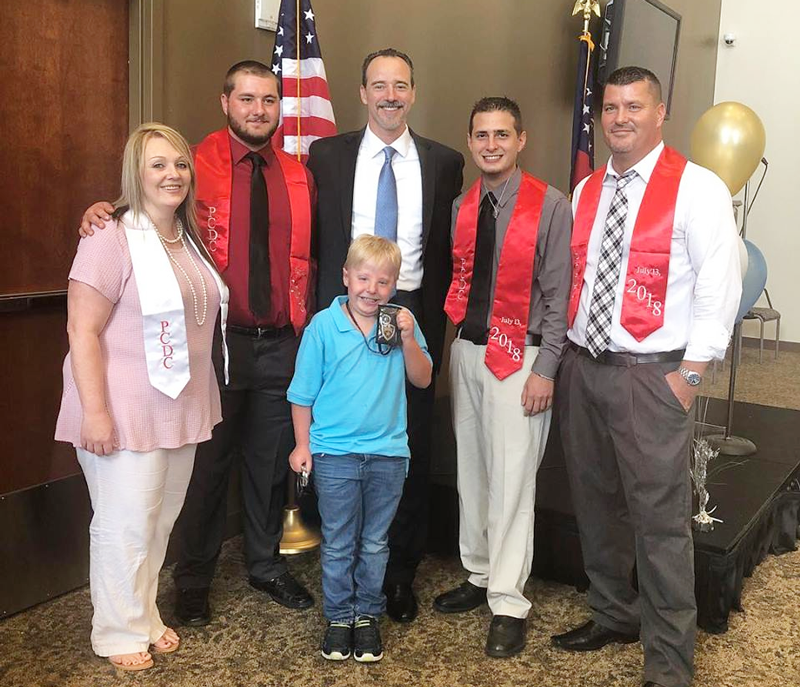Paulding Judicial Circuit Drug Court Program 2nd Graduation
 This was the second graduation of the Paulding Judicial Circuit Drug Court Program. Together with the four participants who graduated in January, this brings the total number of program graduates to eight. These graduates have been in the program for approximately two years. The program lasts a minimum of eighteen months, but it takes some graduates considerably longer to complete it.
This was the second graduation of the Paulding Judicial Circuit Drug Court Program. Together with the four participants who graduated in January, this brings the total number of program graduates to eight. These graduates have been in the program for approximately two years. The program lasts a minimum of eighteen months, but it takes some graduates considerably longer to complete it.
Upon entering the program, the participants are required to radically change their lifestyles. New participants are required to submit to drug testing several times a week. They must attend group therapy 4 days a week, attend individual and family therapy once a month, attend at least three 12-step classes a week, keep a curfew, maintain employment, pay a weekly program supervision fee, begin studying for the GED if the participant does not have a diploma, and attend court every Friday. The Drug Court Team meets Friday mornings prior to court to discuss each participant's progress and to consider others for admission. The Team is comprised of the Judge, the Drug Court Coordinator, a treatment provider, and representatives from the District Attorney's Office, the Sheriff's Office, the Public Defender's Office, and the Department of Community Supervision (probation.)
During Friday court sessions, the Drug Court Judge addresses each participant individually and holds him or her accountable for that week's behavior. Participants that have had a good week may receive an incentive reward, which could be anything from recognition to an earned privilege. Participants that have had a bad week are subject to receiving a court sanction, which could be anything from a fine to community service to jail time. If participants follow the rules, they may earn their way up through the five phases of the program and eventually to graduation. Graduation is followed by six months of aftercare.
All of the participants that graduated last week have maintained their sobriety, re-established relationships with family members, and maintained employment. Two of the graduates obtained their GED while in the Program. One of them plans to go on to become a certified addiction counselor. Another is studying to obtain his license to sell insurance.
Drug Court programs are relatively new in Georgia. They are credited with rebuilding lives and significantly reducing crime. Approximately 75% of drug-involved offenders will be re-arrested within three years of release from confinement. However, that recidivism rate is reduced to approximately 35% for drug court graduates. According to the National Association of Drug Court Professionals, 75% of drug court graduates remain arrest-free more than 2 years after arrest.
Judge Bucci shared at graduation a comparison of the graduates' criminal histories before and after entering the program. During the two-year period prior to entering the program, the eight graduates compiled a combined total of fifty-three new criminal charges. During the two-year period after entering into the program, the eight graduates received a combined total of only one new criminal charge (which was a misdemeanor driving offense.)
According to the Judge, the goal of the program is not perfection; rather, the goal is an improvement. So far, the program is meeting that goal.





















